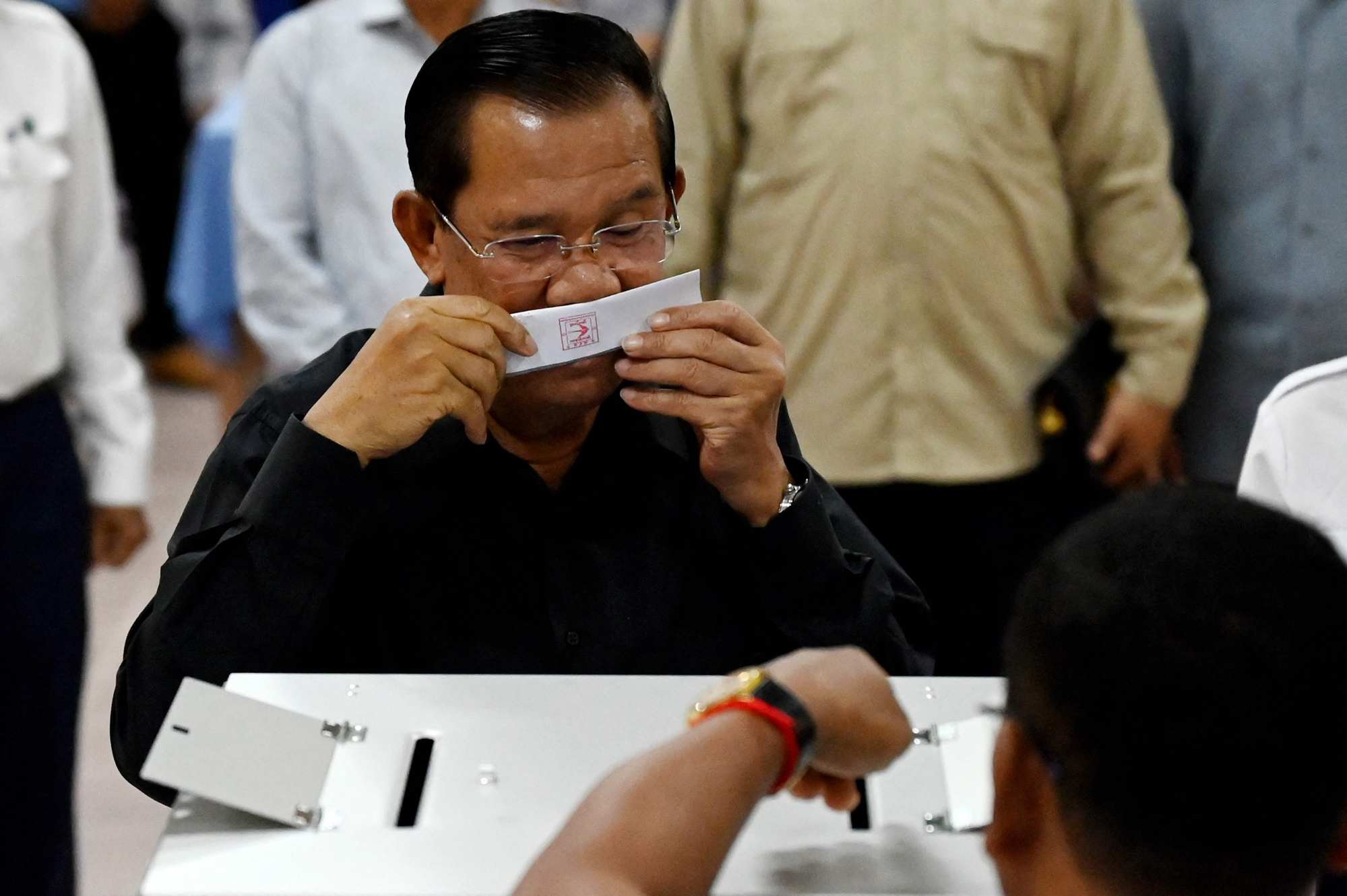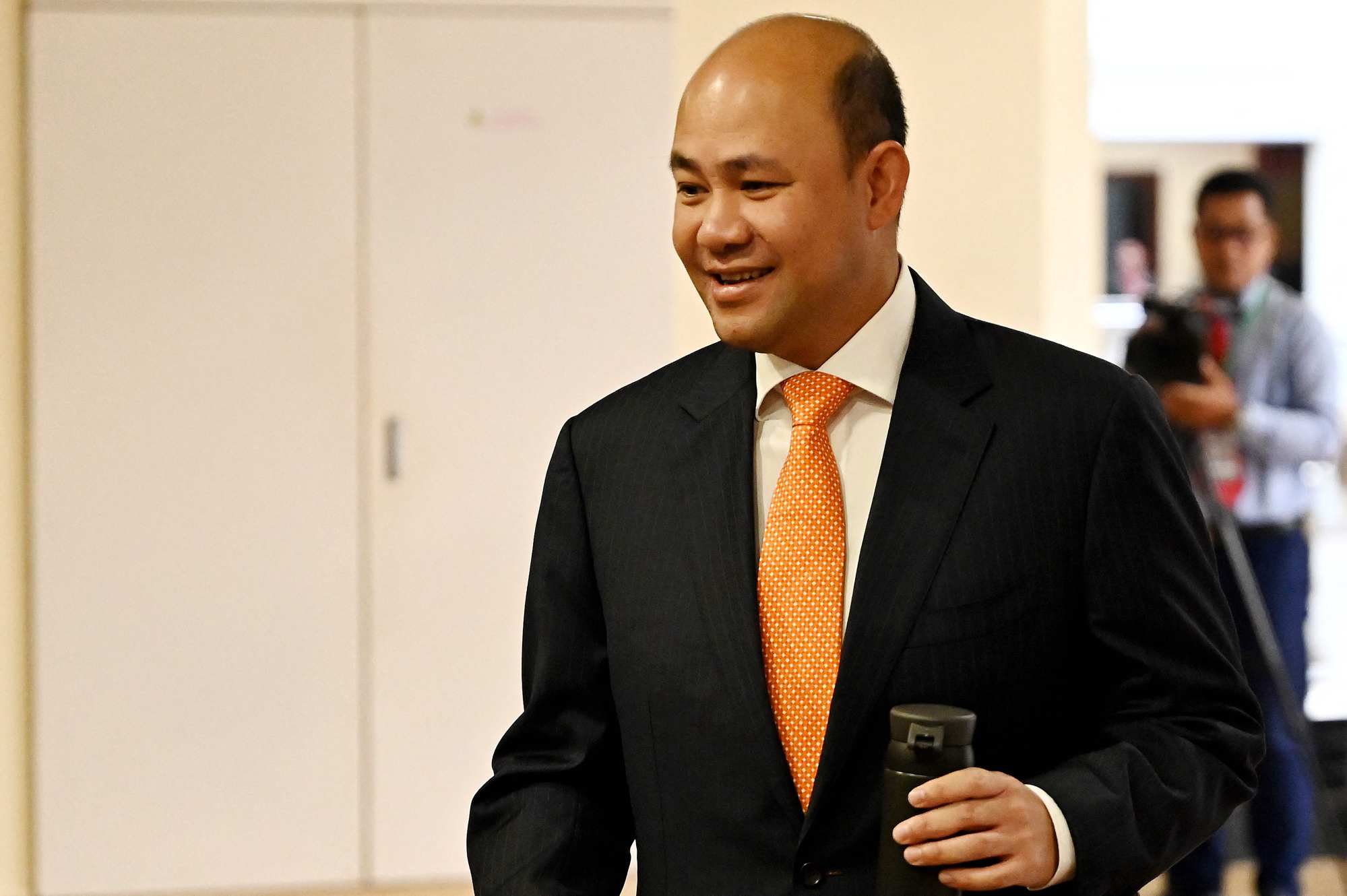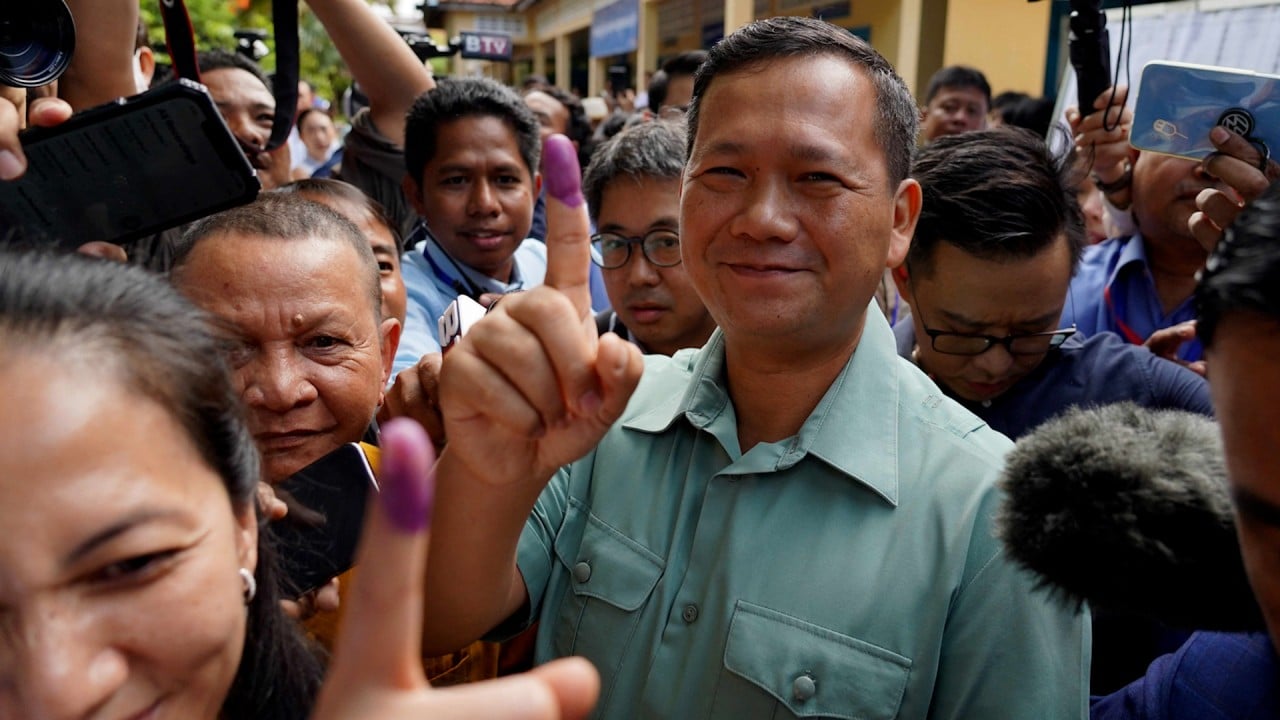Cambodian officials voted in a Senate election on Sunday, setting the stage for former leader Hun Sen to officially return to politics after he stepped down as prime minister last year.
After nearly four decades of hardline rule, Hun Sen handed power to his eldest son Hun Manet in national polls last August held without any significant opposition.
Hun Sen at the time made it clear that despite his resignation, he still intended to wield influence.

The 71-year-old lawmaker and chief of the ruling party cast his ballot near his home in Takhmao city on Sunday morning for a seat in the Senate, the country’s upper house.
Hun Sen has said that he intends to become president of the Senate, allowing him to act as head of state when the king is overseas.
Councillor Chhim Vanarith, voting at the same polling station, welcomed the move.
“If he leads the Senate, obviously our country will be further developed and peaceful,” he said.
Four political parties, including Hun Sen’s ruling Cambodian People’s Party (CPP), the royalist Funcinpec Party and two small opposition parties, are taking part.
Of the 62-seat Senate, 58 seats will be voted on by 125 MPs and more than 11,000 local administrators. King Norodom Sihamoni will appoint two senators, while the National Assembly will appoint two others.
Most eligible voters are members of the CPP – who made a clean sweep of the Senate last election – making Hun Sen’s victory all but certain.
“This is a sign of the Hun family’s further consolidation of power,” said Sebastian Strangio, author of Hun Sen’s Cambodia.
“It is better to ensure that the position not fall into a potential rival’s hands.”
Becoming president of the Senate would protect his son and prevent the family’s control from being undermined, Strangio added.
The National Electoral Committee is expected to take several weeks to publish official results.
But voters in the capital Phnom Penh seemed keen to see Hun Sen back in a position of authority.
“He has a lot of experience, so if he leads the Senate, our country will be prosperous,” said commune chief Oeu Siphon.

The election follows lawmakers approving Hun Sen’s youngest son Hun Many as a deputy prime minister.
The government now includes a number of Hun Sen’s relatives, with several children of his allies also holding top jobs.
After coming to power in 1985, Hun Sen helped modernise a country devastated by civil war and genocide. But critics say his rule has also been marked by environmental destruction, entrenched corruption and the elimination of nearly all political rivals.
The United States, United Nations and the European Union previously condemned last August’s polls as neither free nor fair.
Hun Sen rejected those allegations and said his handover, a dynastic succession compared by some observers to North Korea, would maintain peace and avoid “bloodshed” should he die in office.
He also warned that should Hun Manet’s life be seriously endangered, he would return as prime minister.


